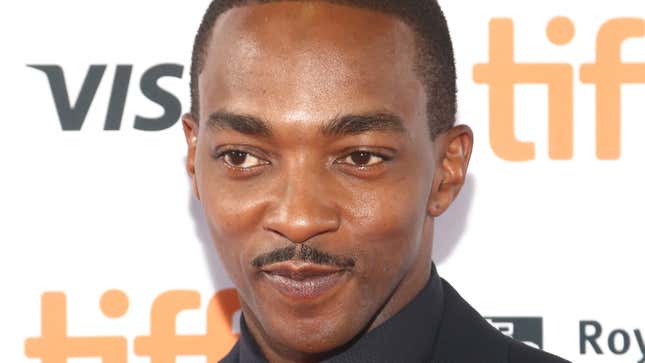
Anthony Mackie’s Marvel character Falcon not only has quite the big responsibility ahead of him as the future Captain America, but Mackie the actor does, as well—specifically, speaking to the fight for diversity and inclusion.
In a recent interview with Daveed Diggs as part of Variety’s Actors on Actors series, Mackie pointed out that he now had more power to speak out on the diversity issues that have been plaguing Marvel. While Black Panther provided the iconic comic cinematic universe some good press in terms of representation in front of and behind the camera, Mackie believes the juggernaut brand still has issues with inclusion behind the camera (and it should be pointed out that true inclusion in front of the camera still needs work overall, as well).
“When The Falcon and the Winter Soldier comes out, I’m the lead,” Mackie mused. “When Snowpiercer came out, you’re the lead. We have the power and the ability to ask those questions. It really bothered me that I’ve done seven Marvel movies where every producer, every director, every stunt person, every costume designer, every PA, every single person has been white.”
Plus, Mackie pointed out the problematic fact that the effort to diversify the technical crew was only made for the movie focusing on Black characters—as if Black crew members can’t also sufficiently work on sets for movies with a mostly white cast.
“We’ve had one Black producer; his name was Nate Moore,” Mackie added. “He produced Black Panther. But then when you do Black Panther, you have a Black director, Black producer, you have a Black costume designer, you have a Black stunt choreographer. And I’m like, that’s more racist than anything else. Because if you only can hire the Black people for the Black movie, are you saying they’re not good enough when you have a mostly white cast?”
Overall, Mackie believes that these types of opportunities are needed to balance things out in the industry.
“My big push with Marvel is hire the best person for the job,” Mackie concluded. “Even if it means we’re going to get the best two women, we’re going to get the best two men. Fine. I’m cool with those numbers for the next 10 years. Because it starts to build a new generation of people who can put something on their résumé to get them other jobs. If we’ve got to divvy out as a percentage, divvy it out. And that’s something as leading men that we can go in and push for.”

